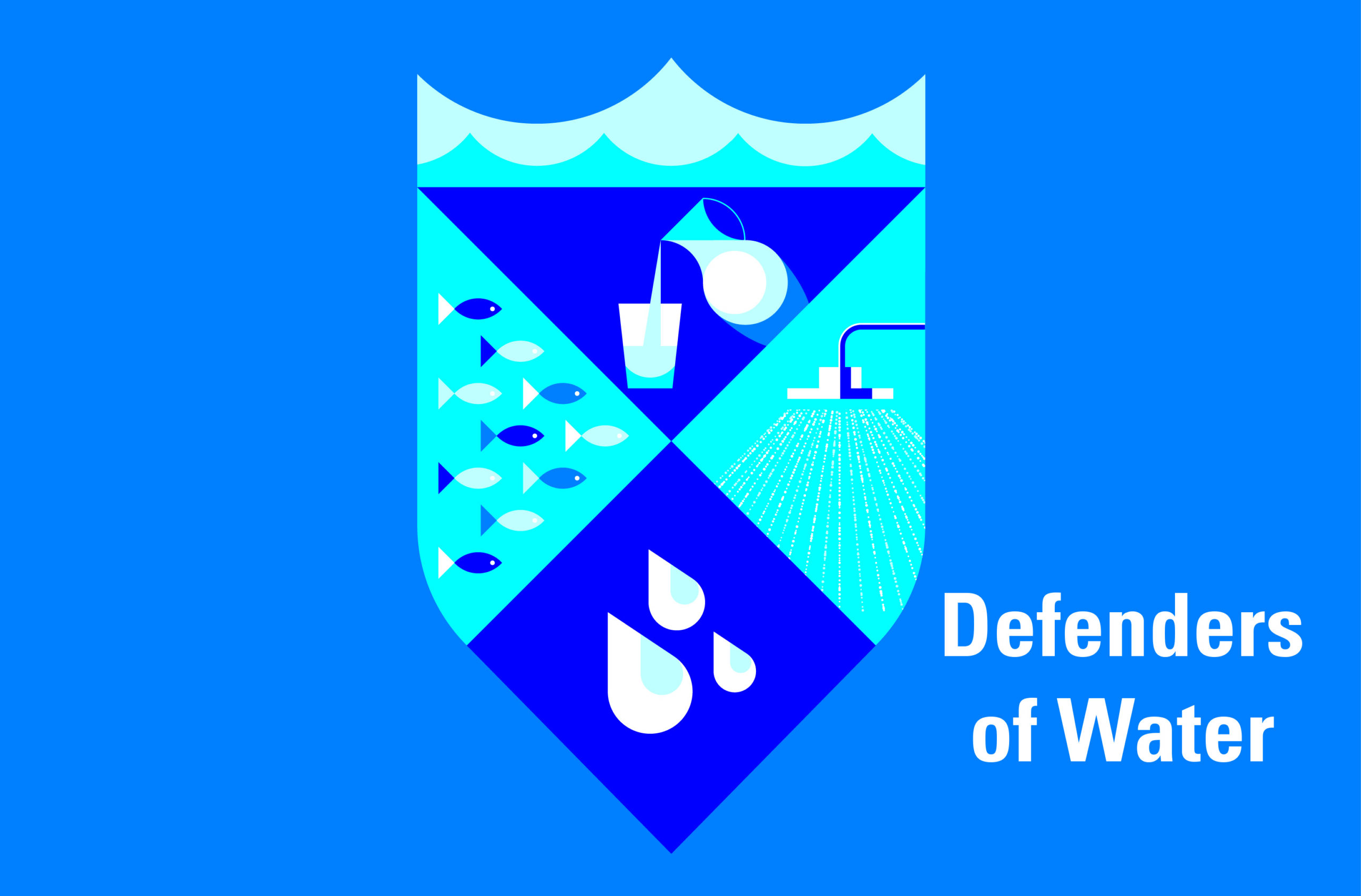About five years ago, Marquette faculty members specializing in water research began meeting monthly during the academic year as part of the university’s participation in Milwaukee’s Global Water Center. As colleagues briefed one another on projects underway in their labs, their scientific approaches and research aspirations, they quickly revealed areas of shared interest and potential collaboration. The participants, mainly from environmental engineering and biological sciences in the early days, began inviting colleagues from other disciplines — hydrologists, chemists, social scientists, and law policy and education scholars — and saw the circle of complementary expertise and eager collaborators expand again and again.
Out of this collaboration, teams have formed, courses have been developed, and grants have been sought and obtained. And recently, this approach generated its biggest dividends yet when Marquette received its largest federal award to date for water-related research — $3.8 million from the U.S. Army Corps of Engineers — to fund an ambitious program, Novel Technologies to Mitigate Water Contamination for Resilient Infrastructure, which the researchers have given a more memorable name, In Defense of Water.
Working with colleagues from the Army Corps’ Engineer Research and Development Center (ERDC), four multidisciplinary research teams from Marquette are pursuing solutions to high-priority water quality issues such as field-based wastewater recycling, antibiotic- and antiseptic-resistant pathogens, and more. The projects will help the Army promote sustainability, resilience and health on and around military sites — and yield important public health benefits as well.
“This award demonstrates the breadth and depth of water group expertise at Marquette,” says Dr. Jeanne Hossenlopp, vice president for research and innovation. “It serves as a reminder that our faculty does significant environmental-related research on a major scale.” The award also provides research experience for eight undergraduates, seven graduate students and up to three law students. “It recognizes that we’re a community of scholars, which includes our students. We’re training the next generation of scientists and engineers,” Hossenlopp says.
This collaboration with ERDC “expands the water technology development we at Marquette have been doing for decades to help provide clean drinking water and protect the environment,” says Dr. Daniel Zitomer, principal investigator of In Defense of Water and chair and professor of the Department of Civil, Construction and Environmental Engineering. “Marquette researchers will now work closely with Army researchers on processes to treat wastewater, improve control of pathogenic microbes, reduce soil and water contamination, and develop technologies to help mitigate forever chemicals such as PFAS in the water.”
Dr. Martin Page, who leads a water treatment and reuse technology research team at ERDC in Champaign, Illinois, comments: “This academic research effort at Marquette University will complement Army efforts to increase water resiliency while furthering the scientific understanding of the associated technologies and frameworks in a manner that benefits the military as well as the public. ERDC researchers at the Construction Engineering Research Laboratory in Champaign, Illinois, and the Environmental Laboratory in Vicksburg, Mississippi, will collaborate with the Marquette team in a manner that leverages knowledge and skills across institutions to address important technical questions relating to water resiliency.”
In Defense of Water is now poised to have a major impact as four research projects get underway, with Opus College faculty leading two of them and co-investigating on the other two led by Klingler College of Arts and Sciences colleagues.
Removing contaminants in mobile wastewater recovery systems
Led by Dr. Brooke Mayer, associate professor of civil, construction and environmental engineering, this project advances research and development of a mobile wastewater recovery system consisting of solids removal, disinfection with ozone, nutrient recovery and membrane processes. “We believe that water reuse will play an increasingly critical role in resilient and sustainable infrastructure in the future,” Mayer says, envisioning this technology playing a key role in recycling water and reducing water waste in deserts and other water-scarce or remote locales where clean water and/or sewerage resources are insufficient for habitation, requiring water to be transported in and out.
To return wastewater to drinkable standards, the multidisciplinary team will target advances in the ability of mobile systems to mitigate viruses, antibiotic-resistant bacteria and chemicals. And in keeping with the waste-to-resource paradigm that is a hallmark of Mayer’s research, the project will focus on generating clean water and more. “If we can not only recover high quality water but also co-recover value-added products such as nutrients, the treatment system offers greater resource recovery benefits,” she says. Mayer’s co-investigators include Zitomer; Dr. Patrick McNamara, Eng ’06, associate professor of civil, construction and environmental engineering; and Dr. Chris Marshall, assistant professor of biological sciences in the Klingler College.
Harnessing data to improve water infrastructure
In the past few decades, there has been an explosion of environmental data made possible by new sensor technology and expanded environmental monitoring systems, such as earth-observing satellites. “There is a lot of work still needed to utilize these datasets and uncover their value for improved design and management of water infrastructure,” says Dr. Anthony Parolari, assistant professor of civil, construction and environmental engineering and lead investigator of this project. “So-called ‘big’ environmental data offers a sandbox of sorts to develop and test out new algorithms to solve some of the most pressing problems facing society.”
To that end, this project strives to harness massive water-related datasets and uncover their value for improved design and management of water infrastructure, engaging colleagues from engineering and water policy to develop a data- and policy-driven approach to improve water quality. The team plans to use data to optimize green stormwater infrastructure performance, including pollutant capture. Data and systems modeling will improve understanding of how data and management uncertainty impact risk of water quality impairment. Legal, policy and governance strategies that affect pollutant transport will be compared and policy roadblocks will be identified.
Parolari and colleagues foresee progress addressing gaps in managing how and where pollutants are transported during rain events. “The opportunity to track these pollutants at high temporal and spatial resolution and control in real time where they move on the landscape — all enabled by data and models — can help us better manage infrastructure that is critical to our everyday lives, from the navigability of our ports and rivers, to making our rivers and lakes safe for fishing, swimming and boating,” Parolari says. “What is new in this project is the integration of these monitoring and modeling strategies with the human side of the equation — decision-making, policy and regulation.”
Parolari is joined by co-investigators Dr. Walter McDonald, assistant professor of civil, construction and environmental engineering; and David Strifling, Eng ’00, Law ’04, director of the Water Law and Policy Initiative and adjunct professor of law at Marquette Law School.

Additional projects focus on disinfection’s impact, removal of PFAS
Another team, under the direction of Dr. Krassimira Hristova, associate professor of biological sciences in the Klingler College, is investigating the microbial ecology of biofilms that form on everything water touches in buildings including pipes, sinks and shower curtains. In addition to learning more about what is killed by typical disinfectants and what comes back after their use, the team will study UV treatment and novel disinfection materials that efficiently control growth of bacteria and viruses on surfaces and in biofilms. Hristova’s co-investigators include Mayer and Marshall.
The fourth team, led by Marshall, is advancing research and development of an innovative two-step system involving electrochemical removal of PFAS (per- and polyfluoroalkyl substances) and subsequent bioelectrochemical degradation and destruction. Widely used in food packaging, firefighting foam and other products, PFAS chemicals are toxic and accumulate in the environment, with inadequate remediation strategies available to address the threat they pose to human health. The system could be used in a range of applications, including drinking water treatment, wastewater treatment and in-place treatment of soils and sediments.
While engineering teammates Mayer and McNamara work to improve existing technologies such as electrooxidation and electrocoagulation for the easier separation of PFAS, Marshall is leveraging research progress he’s made using microbes to degrade halogenated compounds such as PCBs. There are signs the same or related strains of bacteria may help degrade PFAS chemicals. Hristova is also a co-investigator of this project.
Foundation existed to position Marquette as a valued research partner
In assessing how Marquette positioned itself to provide research leadership on a project of this scope and impact, program participants cite several factors that developed over the last few decades. First was the creation in 1993 of the Water Quality Center in the Opus College and its recruitment, through Zitomer’s leadership as director and department chair, of faculty members with outstanding water research expertise. The emergence of a similar, if smaller, cluster in biological sciences in the Klingler College extended this expertise.
Next was the establishment in 2010 of the Water Equipment and Policy Center, a joint venture through which industry members, such as Badger Meter, A.O. Smith, Pentair and the Milwaukee Metropolitan Sewerage District, and researchers from Marquette and the University of Wisconsin–Milwaukee develop new technologies to clean contaminated water. The center, managed at Marquette by Zitomer and under the auspices of the National Science Foundation’s Industry/University Cooperative Research Center program, has resulted in multiple patents and licensing agreements.
And Marquette’s membership in the Global Water Center helped to give researchers and partners from many departments a collective identity and a critical forum for collaboration.
“The R&D projects we’re now engaged in complement the world-class results Marquette water quality researchers have been obtaining for many years and put us on track to invent the next generation of sustainable water management technologies,” Zitomer says. “It’s an exciting time for students and faculty to be Marquette water team members.”



